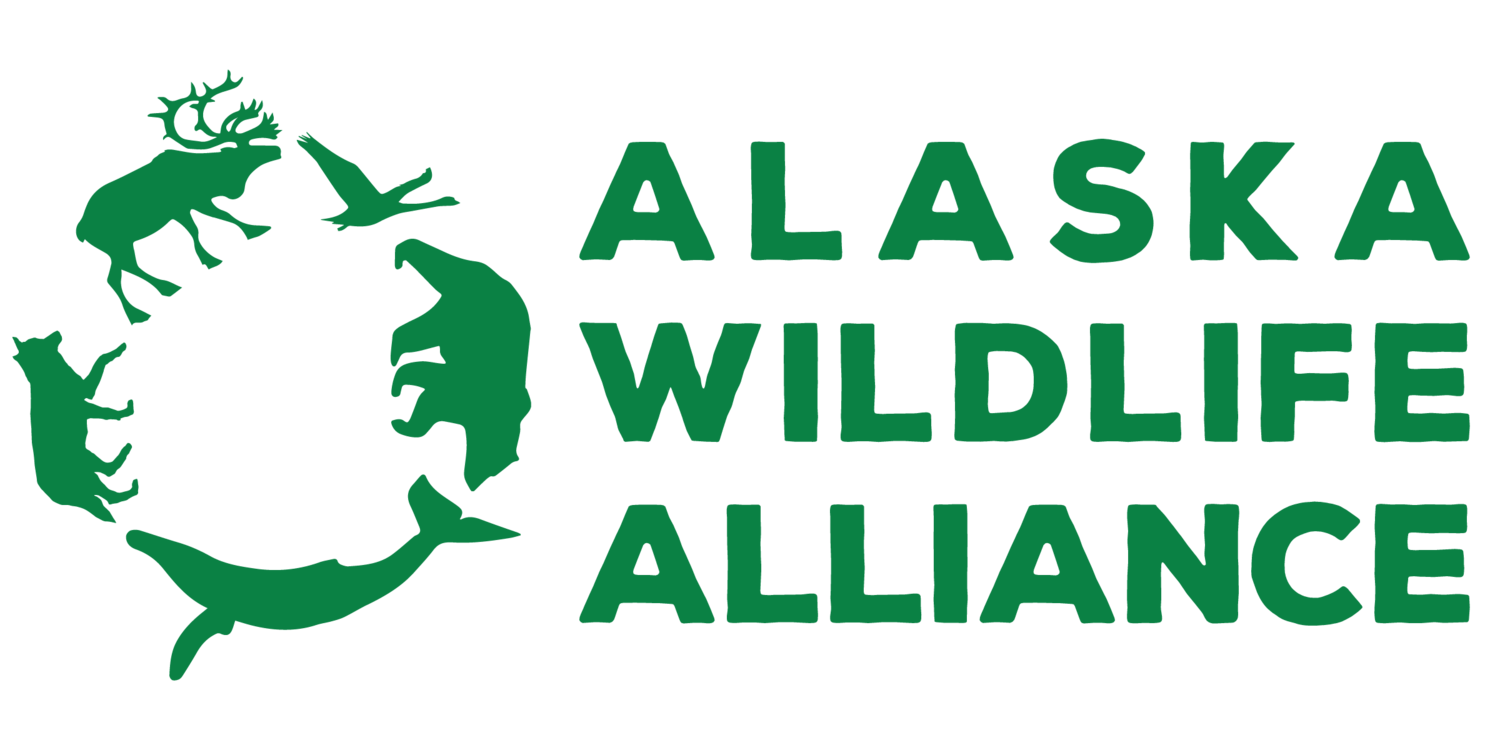FOR IMMEDIATE RELEASE
October 26, 2020
Contacts:
Nicole Schmitt, Director, Alaska Wildlife Alliance, nicole@akwildlife.org, 907-917-9453 or 719-244-8568
Joel Bennett, co-plaintiff, Juneau resident, joelbennett222@gmail.com , 907-723-8961
Joe Geldhof, representing attorney, joeg@alaskan.com , 907-723-9901
Lawsuit filed to suspend upcoming Prince of Wales wolf hunting and trapping season
JUNEAU, AK – Alaska Wildlife Alliance and Juneau resident Joel Bennett, represented by the Law Office of Joseph W. Geldhof, filed a lawsuit against the Commissioner of Alaska’s Department of Fish and Game and the State of Alaska. The plaintiffs seek a closure of the 2020-2021 state wolf hunting and trapping seasons on Prince of Wales island. The plaintiffs initiated the action in the Juneau Superior Court to prevent an unsustainable harvest of a wildlife resource in violation of Article VIII, Section 4 of the Constitution of the State of Alaska.
Prince of Wales is home to the genetically distinct Alexander Archipelago wolves. Their numbers reached a historic low on the island in 2015, when the population estimates were a mere 89 wolves. More stringent trapping quotas were introduced and by 2018 the wolf population on Prince of Wales had rebounded to an estimated 170 wolves. In 2019 the Alaska Board of Game dropped the harvest quota and instituted a population objective-based system, tasking the Alaska Department of Fish and Game (ADF&G) to sustain 150-200 wolves annually. Upon the introduction of this new system, ADF&G opened an unlimited two-month season where trappers sealed their wolves within 30 days of the end of the season.
Instead of limiting the number of wolves each trapper could take, or maintain a 14 day sealing requirement to know how many wolves were taken throughout the season, ADF&G simply asked that trappers “moderate their effort”. The results of this hands-off approach were astounding.
In March, after the season closed, the Division of Wildlife Conservation released a report announcing that 165 wolves were killed during the season, not including illegal and unreported kills or natural mortality. The last population estimate the agency had was from 2018, which estimated 170 wolves (within a range of 147-202 wolves).
In August, Alaska Wildlife Alliance and Joel Bennett filed a petition with ADF&G’s Commissioner to close the state’s upcoming 2020-2021 season on the grounds that the last season’s harvest nearly exceeded the most recent department population estimate of wolves believed to be living in the game unit. To avoid overharvest and significant damage to the population of wolves in Game Management Unit 2, they petitioned that no additional harvest of wolves should be permitted in this unit until wolf populations rebound.
In September the Commissioner denied the petition, stating there was “no emergency at this time”. Later that month, Alaska Wildlife Alliance and Joel Bennett renewed their petition to close the upcoming season. In October, the Commissioner rejected the plaintiff’s petition and declined to make an emergency finding.
As reported by Jacob Resneck of CoastAlaska, last week ADF&G testified before the Southeast Alaska Subsistence Regional Advisory Council that the agency plans to open a wolf hunting and trapping season this year, but refused to share the most recent wolf population estimates with the subsistence board or the public.
“The outcomes of last year’s season leave everyone with a lot of questions, namely how many wolves remain on Prince of Wales. Now, ADF&G says they will open another season, but won’t share the data that led them to conclude that such an opening would be sustainable, or even legal under the state’s sustained yield provisions,” says Nicole Schmitt, Director of Alaska Wildlife Alliance. “We’re filing to delay the state’s season until there is proof that the wolf population is within the Board of Game’s population objective, and that the season is managed in a way that won’t lead to such a catastrophic loss again. Our organization is not anti-hunting –many of our Board of Directors, members and staff hunt. We advocate for ecosystem-based management, and wolves are a key part of this ecosystem. We also support subsistence rights on the island – if a limited season is sustainably opened, it must prioritize federal subsistence users.”
Plaintiff Joel Bennett, an active hunter for over 50 years in Alaska, served for 13 years on the Alaska Board of Game. “Wolf management on Prince of Wales is a scorched earth crusade to reduce a threatened, valuable resource to unacceptable levels. If the wolf on the island went the way of the passenger pigeon, the present leadership at the Department of Fish and Game wouldn’t shed a tear,” Bennett said.
Joe Geldhof, a Juneau-based attorney, is representing Mr. Bennett and Alaska Wildlife Alliance. Geldhof noted, “The failure of Commissioner Vincent-Lang to responsibly manage the wolf population in GMU 2 undercuts Governor Dunleavy’s contention that Alaska is a responsible steward of our state’s natural resources. The Alaska Constitution requires management according to sustained yield principles. Why Vincent-Lang is incapable of following mandated constitutional requirements is an interesting question but more interesting to me is why Governor Dunleavy puts up with this kind of renegade conduct that makes him look like his administration is out of control.”


